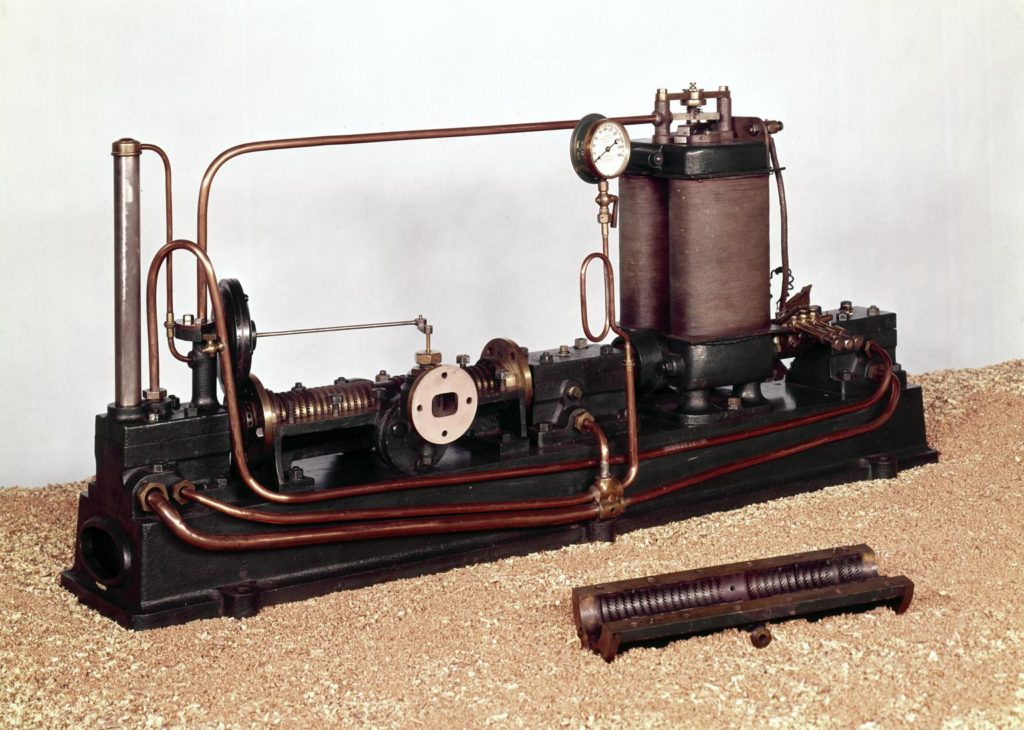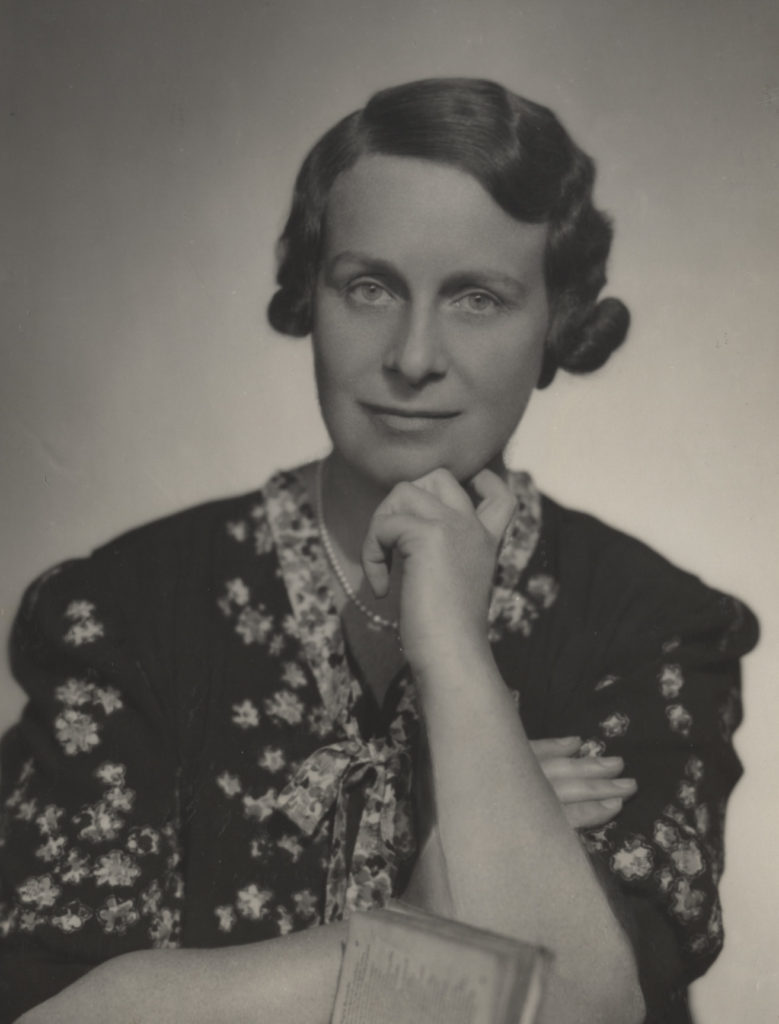by Elizabeth Bruton
For anyone looking into the history of women in British engineering, the archive of the Women’s Engineering Society (WES) from its foundation is an essential resource. This is held by the Institution of Engineering and Technology (IET) Archives at Savoy Place in London which hosts material relating to the IET and its predecessors and the history of engineering and technology more generally. The IET’s broader holdings can thus help us map the changing opportunities for women in a range of technical professions since the early twentieth century.
As discussed in Graeme Gooday’s earlier blog post, the Women’s Engineering Society was founded in June 1919 by seven women including Katharine Parsons and her daughter Rachel. Owing to their collaborative engineering expertise it was not just Charles Parsons who helped make this Anglo-Irish family eminent in maritime engineering and especially steam turbine power.

This follow-up blog post offers a guide to the documentation on women in engineering such as Lady Parsons held at the IET Archives and how to search for it more generally via its online catalogue.
Women’s Engineering Society
It you search the IET Archives online catalogue for ‘Women’s Engineering Society’ no fewer than eighty four search terms come up. These cover material back to the months prior to WES’s founding, but mostly including WES minutes, financial records, membership records, correspondence, conferences programme, press coverage, photographs, paper copies of (the recently digitized) The Woman Engineer, plus information on films and special series.
Lady Parsons
A search for ‘Lady Parsons’ brings two items up, the first being a file of correspondence from 1919 to 1923. Almost all of this is a series of letters by WES’s first Secretary Caroline Haslett in which you can see how Haslett worked to recruit early members to WES and also how far Lady Parsons personally supported the Society’s precarious finances.
The second item is an important lecture delivered by her in July 1919, a month after WES’s founding. ‘Women’s Work in Engineering and Shipbuilding during the War’ was delivered by Lady Parsons at the First World War Victory Meeting in Newcastle upon Tyne. This speech has been transcribed by WES’s Magnificent Women project and is available online here.
In her conclusion, Parsons pleaded for women active in engineering during the Great War not to be forced out of the profession and replaced by male combatants who would be returning to it under the ‘Restoration of Pre-War practices Act’.
Electrical Association for Women

The IET archives also holds fifty three items in the collections of the Electrical Association for Women. Founded initially as the Women’s Electrical Association it soon changed its name to avoid confusion with the Workers’ Education Association. Its origins lie in a WES meeting in November 1924 at which some WES members aimed to increase domestic usage of electrical technology by targeting training of women at home. The papers runs up to the closure of the EAW in 1986
Caroline Haslett, as first WES Secretary and an early and influential member of the society, was Director of the EAW from 1924 to 1956, acquiring the title of Dame Caroline in recognition of her labours.
Papers of Dame Caroline Haslett
Complementary to the papers of the Electrical Association for Women (EAW) are the papers of Dame Caroline Haslett. These reflect her intense professional involvement, not only in the EAW, but also in the British and International Federations of Business and Professional Women, and much else besides.
Haslett was especially keen to both promote electricity in the home, especially to women, and for women to be better educated on the science underpinning domestic electricity and technology.
Women’s Engineering Society – Papers collected by Mrs Isabel Hardwich
The collection by electrical engineer and photometry expert Isabel Hardwich includes photographs of women engineers at the Metropolitan Vickers/AEI publicity department, where Hardwich had worked since graduating from Cambridge in 1941, initially as a post-graduate apprentice. In the same year, Hardwich had joined WES and was clearly an active WES member until she retired in 1979.
Although small in number, the collection is a rich selection of early pamphlets on women in engineering, a large number of surveys and reports on the engineering industry and the position of women in it, and articles and cuttings form professional journals and daily newspapers. The material is both national (British) and international in scope, showing increasing opportunities for women in engineering around the world.
The International Conference of Women Engineers and Scientists (ICWES)
Lastly the IET Archives holds much printed material from ICWES conferences. This material was donated mostly by Dr Elizabeth Laverick FIEE (who also donated the WES archive collection), chair of the ninth ICWES. Some was passed to her by Isabel Hardwich who had represented WES at the early conferences and acted as Honorary Secretary of the Second Conference in 1967.
The first ICWES meeting held in New York in June 1964 was organised by the Society of Women Engineers – the US counterpart to WES, founded in 1949. Well-attended by delegates from many disciplines from across the world, the ICWES soon became a regular event, being held in a different country every three or four years.
What can you do?
Through such extensive holdings in the IET Archives on the history of women in engineering, there is much scope to develop a fuller story of the diverse and evolving opportunities – institutions, conferences, and networks – for women in the field. There is much still to learn about the history and contribution of women to engineering!
If you want to visit see here for further details about the IET archives, to search their catalogue or to book a visit – contact details are here.
For a more general introduction to using archive material for learning about women in engineering, we are holding a free archives taster session at The Treasures of the Brotherton Gallery, University of Leeds on the 17th September, 4-6pm, book here.